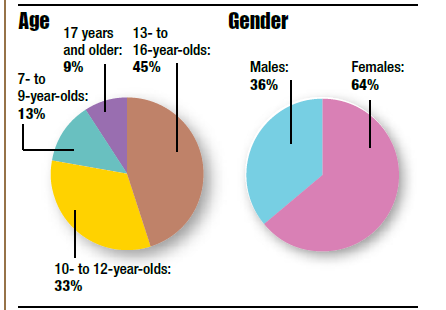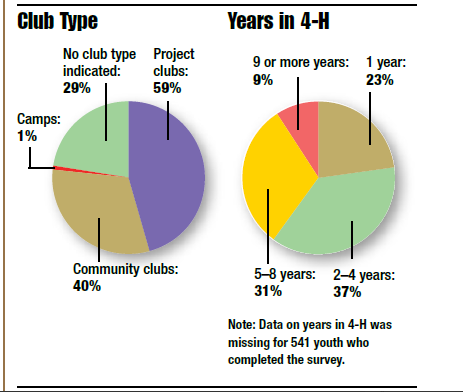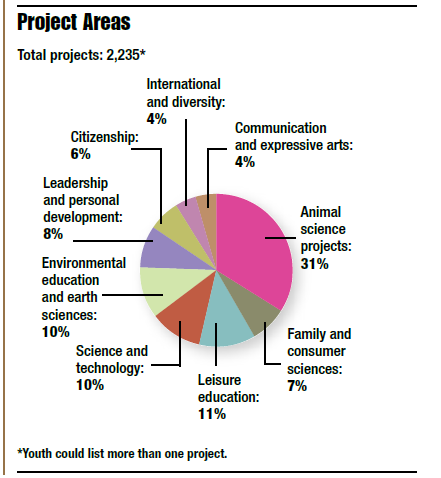By helping youth develop critical life skills, fostering citizenship, and promoting leadership.
4-H Youth Development programs offer important socialization and learning opportunities for Pennsylvania’s youth. The program’s informal learning environment helps youth develop critical life skills, fosters citizenship, and promotes leadership. If designed and implemented appropriately, youth programs like 4-H offer a safe environment in which youth can explore their world, develop skills, and gain a sense of belonging with peers and adults. Many studies have shown that youth participation in community-based programs can contribute to a variety of positive developmental outcomes, such as increased life, workforce, and leadership skills, as well as active engagement in the community through citizenship.
Faculty in the College of Agricultural Sciences at Penn State conducted a study—part of an ongoing evaluation of Pennsylvania 4-H—to determine if youth who participate in 4-H show an increase in life skill development over time while involved in the program. Over the last four years, 1,190 youth participating in Pennsylvania 4-H completed the “Skills for Everyday Living” survey twice (pre- and post-test). The statistical analysis demonstrated that youth’s ability in the five life skills measured—decision making, critical thinking, communication, goal setting, and problem solving—was significantly greater after their participation in the 4-H program than before they started the program. For example, youth’s communication skills increased by 10 percent and their goal-setting skills increased by 11 percent. According to 2002 research book sponsored by the National Research Council and the Institute of Medicine, life skills, like these five life skills, are directly linked to youth’s academic success and engagement in positive behaviors, such as giving back to the community. Moreover, youth who develop these skills are more likely to be productive, contributing members of society now as young people and also as adults. The results of this study are positive and indicate strong 4-H Youth Development programs throughout the Commonwealth of Pennsylvania.
Sample Demographics



Strengthening Life Skills
Results of the study statistically indicate that participation within the 4-H Youth Development program is associated with the change in life skill development and practice. Youth participating in the 4-H Youth Development program showed significant increase in their skills as defined below:
- Decision making: Identifying and selecting a choice among possible alternatives and then evaluating the consequences of that choice.
- Critical thinking: Thinking that evaluates reasons and brings thought and actions in line with evaluations. Youth may know how to access and locate, interpret, and apply information. However, if they do not invest any time in evaluating the information they use, their efforts often result in a low-quality product. Worse, failure to evaluate may result in unfavorable outcomes especially when associated with flawed information.
- Communication: The dynamic process by which people exchange thoughts, ideas, and messages. Listening is the act of interpreting sounds and/or visual stimuli and using those interpretations to give them meaning.
- Goal setting: The process of setting benchmarks, monitoring progress, and using feedback to achieve a targeted result.
- Problem solving: The process of using reasoning and analysis to look beyond the surface of a problem to the underlying concepts that need to be part of the solution. It is a process of recognizing and correctly defining problems, creating and implementing solutions, and evaluating the results of those solutions.
4-H Youth Development programs are an important place for youth to learn new concepts and build their life skills. In order to ensure the ability of the next generation to make sound decisions and assume leadership positions within our communities, it is critical that society commit to providing positive opportunities like 4-H to make a difference in their lives.
Prepared by Claudia C. Mincemoyer, associate professor of 4-H Youth Development, and Daniel F. Perkins, professor of family and youth resiliency and policy.

